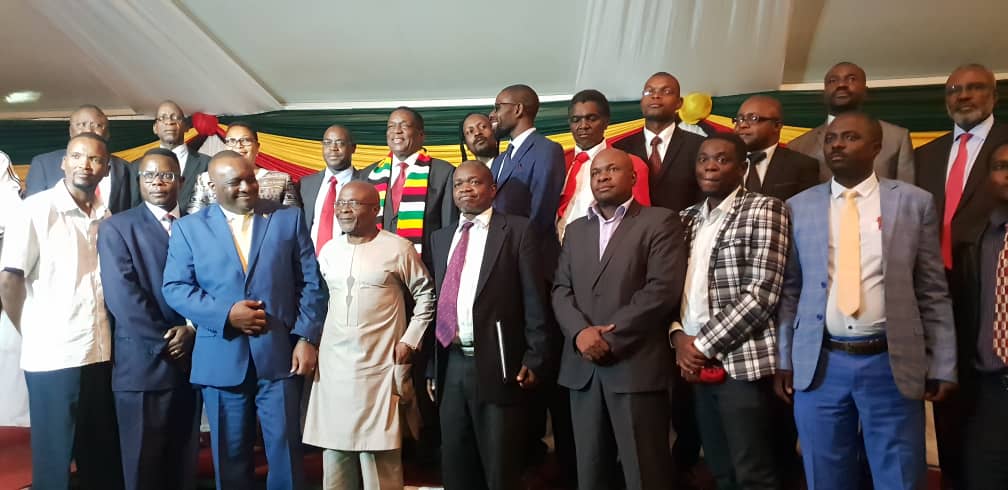By Bevan Musoko
The on-going national discourse on dialogue has brought to the fore the truth that, despite all the differences among Zimbabwe’s various political and business interests, dialogue remains the foundation for resolution of the various challenges confronting Zimbabwe.
It is understandable that political players, civil society organisations, Churches, business sector, students and ordinary citizens hold differing views on how to resolve the prevailing economic challenges. In most cases, these differing views are motivated by sectional and parochial interests, which, however, are all superseded by the overall national interest which benefits all Zimbabweans.
Zimbabwe’s national interest is centred around providing adequate welfare for all its citizens, that its territory is secure from aggression, ensuring that the country takes its place of pride among the community of nations, that all its citizens are secure from the want and deprivation, and the security of future interests of all its unborn citizens. It, therefore, follows that the country’s efforts should all be directed towards securing these aspirations. It is an unwritten contract that all citizens of Zimbabwe are expected to work towards securing these noble aspirations, for their own families and the nation at large.
Despite differences of opinion, ultimately, all efforts by citizens must uphold these cherished goals. In spite of differences of tribal origin, religious beliefs, political persuasion, educational level and social station, awareness of national consciousness enjoins citizens to co-operate with others in achievement of these goals.
It is against this background that the continued intransigence by MDC to hold the nation at ransom over the 2018 elections undermines the country’s efforts to move on. Whether the MDC concerns on the elections are genuine or otherwise, there must come a point where parochial interests of political parties and their leaders, CSOs and business sector must pave way for the national interest. As things stand in Zimbabwe at the moment, all efforts towards economic revival are being actively undermined by opposition forces who continue to parrot the gospel of stolen elections, illegitimate leadership and therefore, an unsafe environment for investors. Potential of whole generations has been undermined due to an amazing focus and obsession with elections. It is as if elections are an end in themselves. Yet elections are just but a means to an end. The end of securing a majority leadership which would steer the ship of State towards achievement of the national developmental goals.
South Africa held national elections in May 2019. Despite simmering voices of discontent with the overall pre-election political environment, the parties that did not win the majority, among them the militant Economic Freedom Fighters and the Democratic Alliance, have accepted the result and have moved on. Despite his acerbic attacks against SA President, Cyril Ramaphosa, EFF leader, Julius Malema, was among the first to congratulate President Ramaphosa.
Similarly, the DA raised various concerns but made it clear that it would move on. Here is a citizenry which realises that, despite the political differences they are bound more by their common interests as South Africans than the parochial political interests of individuals. Noise over the elections has died down and all citizens have turned their political swords into ploughs for economic development.
Back home, it is still noise of a tsunami level over concerns of poll irregularities by MDC. We are constantly bombarded with negativity over the economic situation over the supposedly imminent ZANU PF implosion over succession politics and the so-called decay of the national fabric. Listening carefully to MDC voices, one always notes the overriding focus on negativities and alleged State failures. The narratives are informed by always reminding citizens of how bad ZANU PF and its Government are, such that any possible narratives on exploring solutions and way forward are drowned. The strategy is to psyche citizens that all is broken in Zimbabwe and ZANU PF is blamed for all the challenges.
For the MDC to remain stuck in its demand for a national transitional government is little more than political brinkmanship which is likely to lead to a stalemate with ZANU PF. ZANU PF won the 2018 elections and to expect it to accede to the MDC demand for it to surrender its mandate for a transitional authority is expecting the impossible. It can only be the MDC that should swallow its pride and join the Political Actors Dialogue initiated by President Mnangagwa in the interests on national development.
Chamisa cannot smuggle himself into Government under the pretext of resolving an alleged illegitimate Government, which after all, was voted into office by the majority of Zimbabwe. The Zimbabwe Electoral Commission recently disclosed that it has so far won 73 out of the 80 electoral petitions filed by losing MDC candidates after the 2018 elections. This is testimony that the elections were above board. Yet Chamisa and company continue to parrot the misguided gospel of illegitimate leadership.
In contrast, South African opposition parties do not undermine Government initiatives. At the end of the day, what defines us as Zimbabweans is the commonality of our origin and interests, which should inspire us to forge a common future.
Zimbabweans are expecting opposition parties, churches, civil society organisations, art and cultural organisations, organised labour, business and ordinary citizens to join hands in building a Zimbabwe we all want to leave for posterity. President Mnangagwa has led the way through the Political Actors Dialogue, which is set to incorporate other stakeholders in its deliberations.




